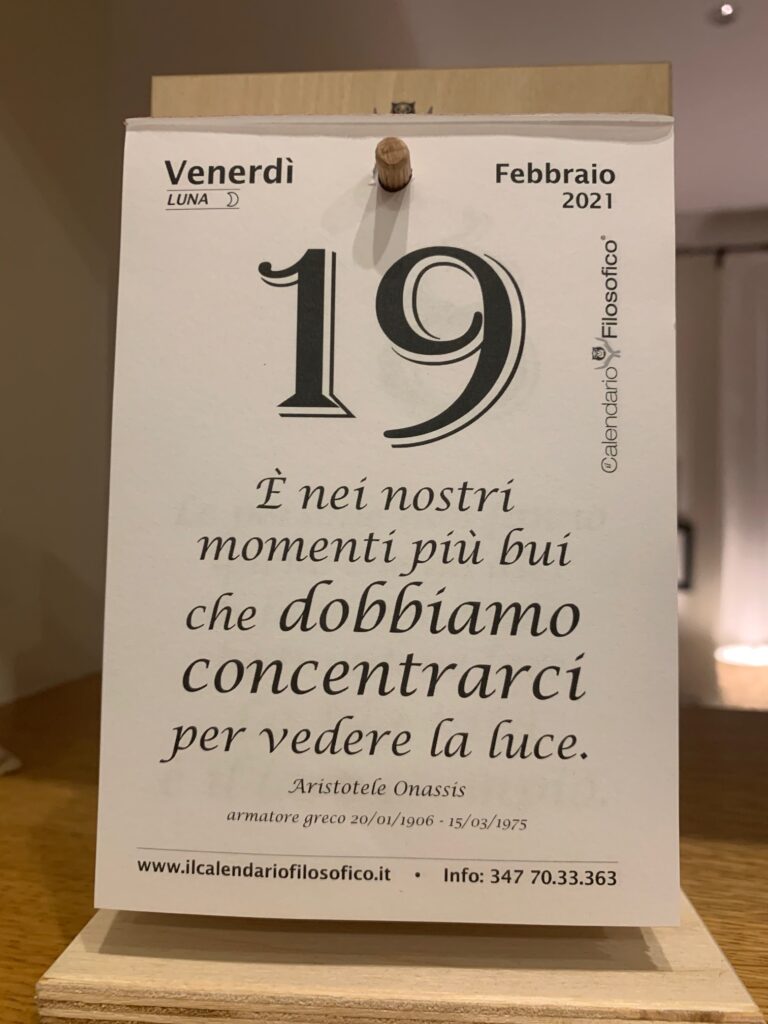
I’m not a person who buys plants. While I like the idea of brightening my place up with something green, I have neither the attention span nor the desire to try and keep such things alive on my watch.
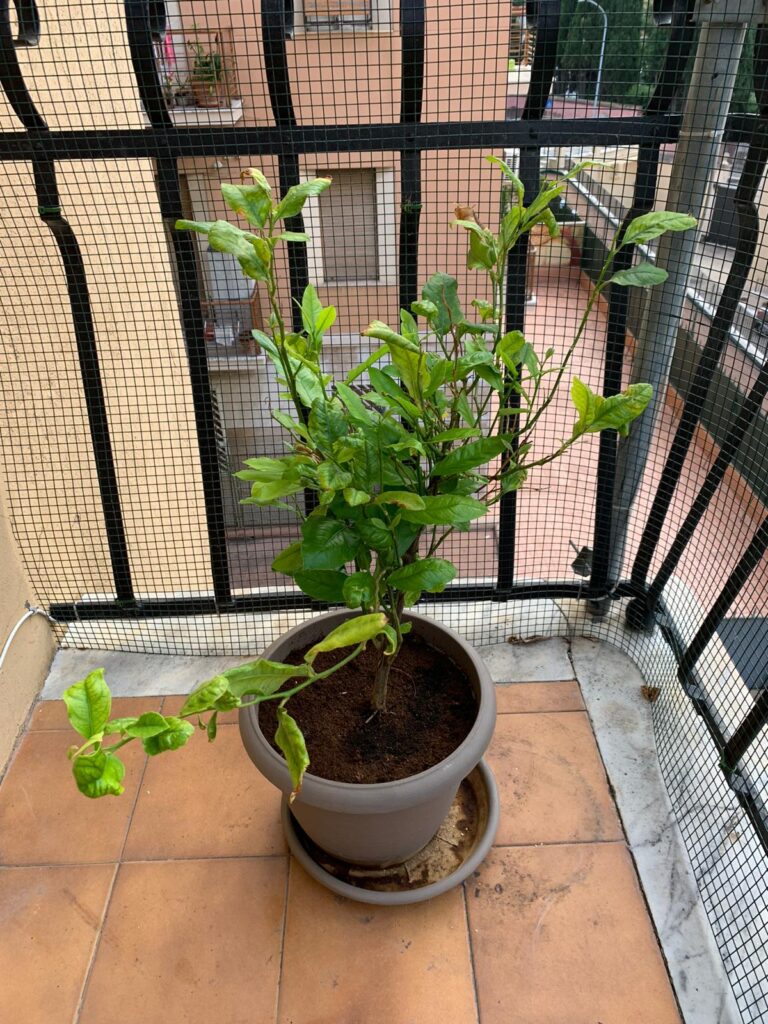
This is why, upon arrival in Rome, I took custody of my predecessor’s houseplants with a certain dose of trepidation. One plant is a Charlie Brown Christmas tree-looking citrus (I think it even came with a name), and the other was a delicate orchid with no blooms at the time of transfer (to my eye he was just a big leafy guy).
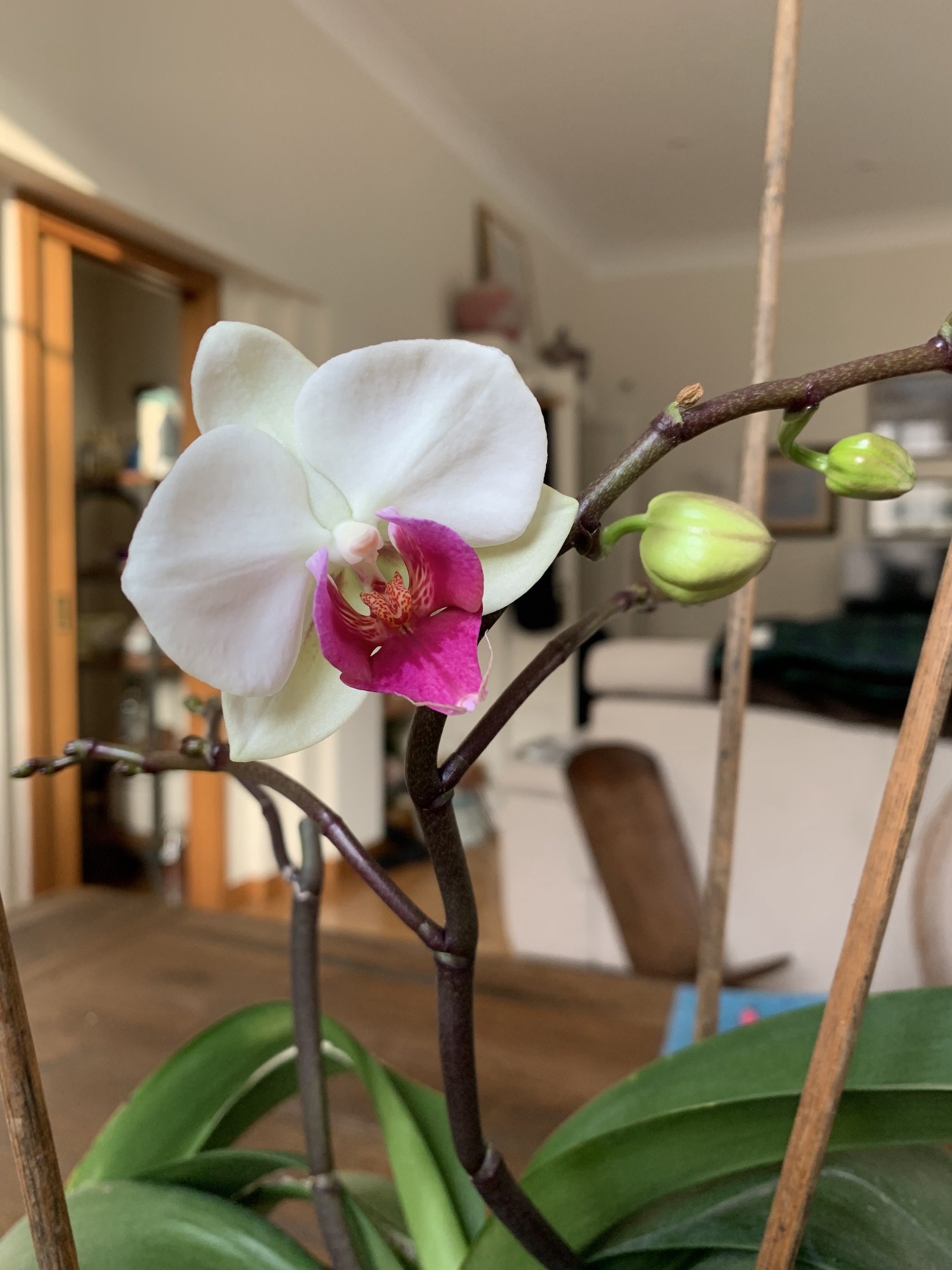
While a bit worried at the outset, I am happy to report that after a year, both are still alive and kicking. The citrus plant hasn’t really done much with its life apart from sitting on my balcony and shedding leaves. The orchid, on the other hand, became the delight of my 2020 lockdown existence. With very little intervention on my behalf, it awoke as if by magic from a winter nap and unfurled into a musical scale of enchanting blooms. When that happened, I realized that I’d neither the imagination nor respect for the orchid’s capacity.
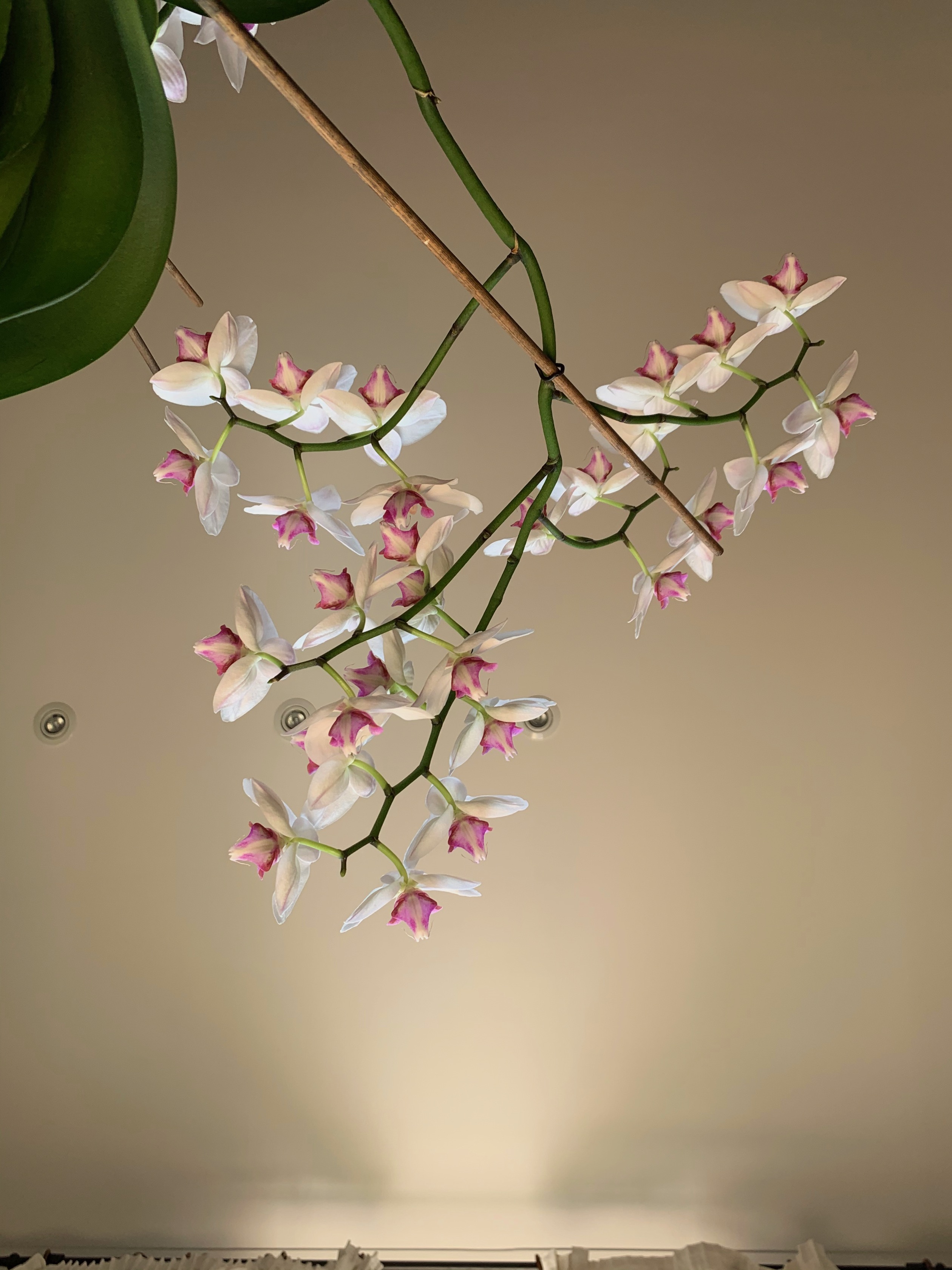
Regeneration, renewal and wonder for nature’s vibrancy. This is why people get into houseplants. I understand all of this now—but still I can’t say that I’ve gotten into houseplants.
On Christmas last year, long after the orchid’s white and fuchsia blossoms gave themselves up to my dining room table, the undemanding orchid plant suffered a mishap. Through no fault of its own, on that morning it took a tumble off the table. It was actually a culmination of repositioning the pot ever closer to the table’s edge and finally one errant brush with a human body. Ka-thunk. A Christmas disaster. The ground was covered with rocks that had been tightly packed into the base alongside the plant’s impressive root network. I felt terrible. After asking so little and then bringing me so much joy, this is not how I wanted the flower to wind up.
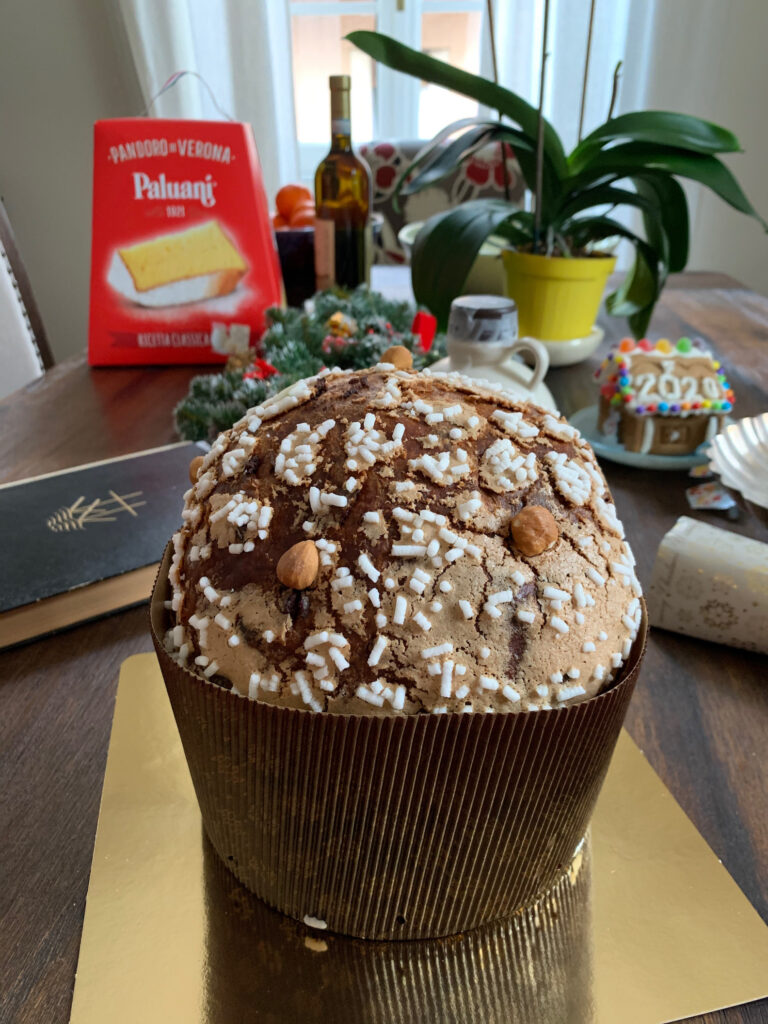
The orchid was immediately repotted and propped up like a drunken sailor. A few of its wide green and bladey fronds were split down the center. No trace remained of the bony green shoots that I hoped would produce flowers in 2021—those had snapped off and also laying on the floor. There really wasn’t else much to be done, and I wasn’t sure how happy the orchid was going to be going forward. But as I said at the top of this story, I don’t really have the attention span for plants. I kind of forgot about it again, and largely relied upon Italy’s generous sunshine to serve as a babysitter.
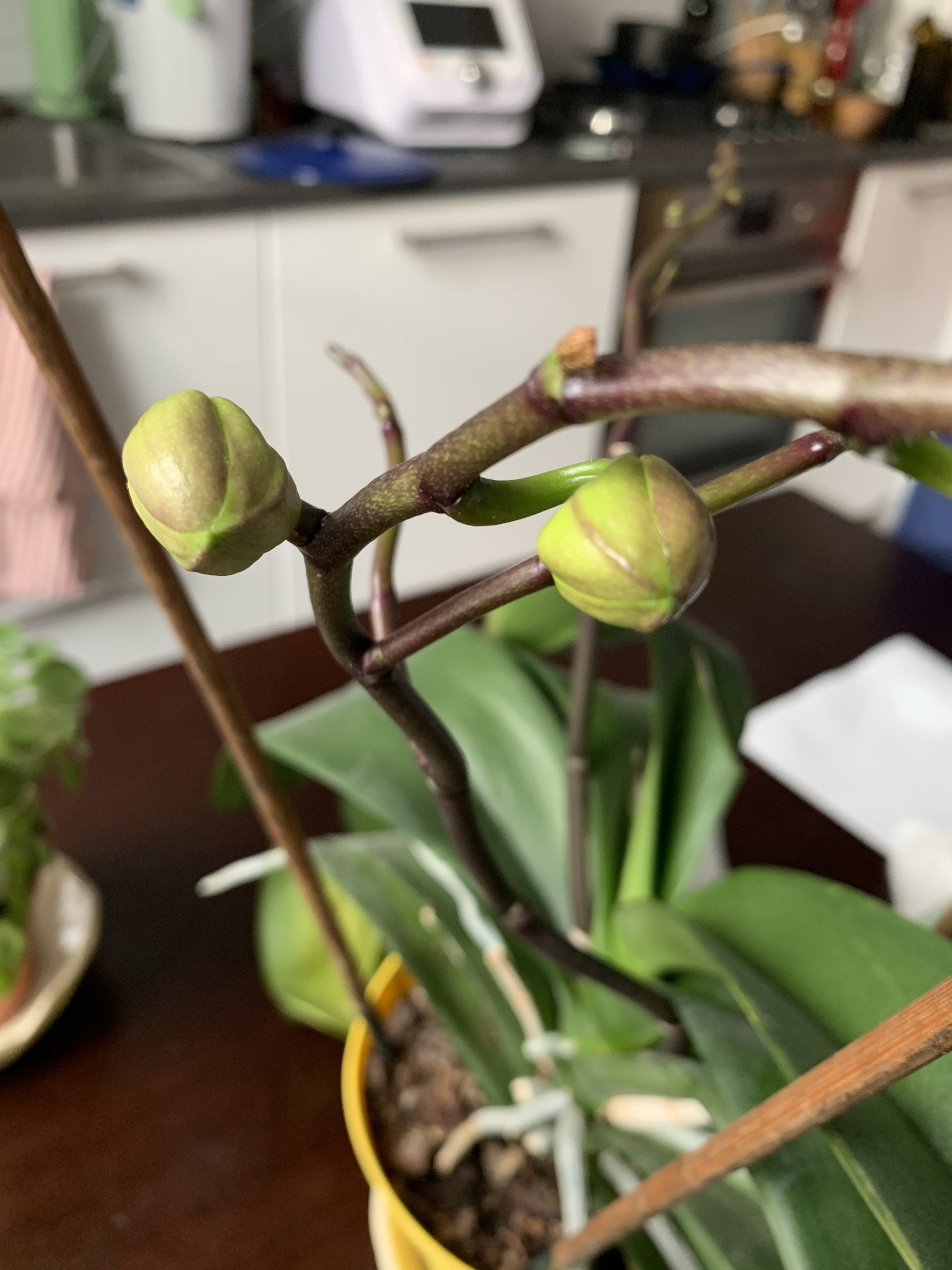
Then last week happened. I remembered to give it a drink of some orchid food (again, provided by my predecessor). It has started to warm up in Rome, and the dining room is getting more sunlight. The other day while I was laying out laundry to dry, the orchid caught my eye. Seemingly out of nowhere, there was a new stem growing strong. It had buds on it. The orchid was coming back.
I think that was the first time I ever smiled at a plant.
***
This morning, instead of heading into the office right away, I turned on the television. I knew that the major networks were broadcasting a hastily-arranged yet solemn state funeral. I don’t know how far the news has stretched, but on Monday a UN convoy was ambushed in the Democratic Republic of the Congo; the Italian ambassador to the Congo, his Italian military bodyguard (carabiniere), and the Congolese driver were all killed by assailants who have yet to be identified. In a year full of so many losses, this attack was an added weight that the world could have done without.
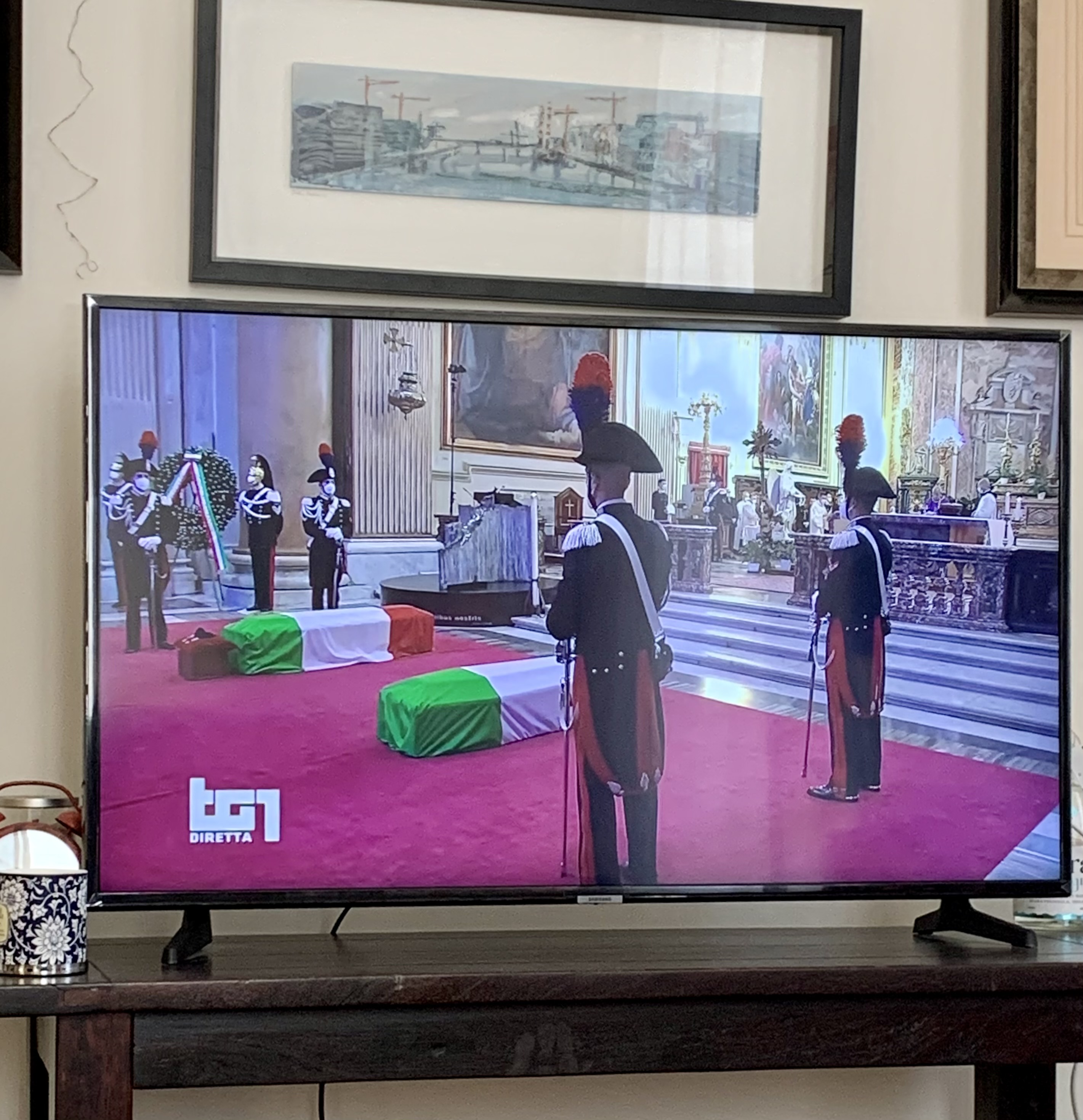
I watched the entire service. The church where it took place is only a few kilometers from where I live. Throughout the funeral, there were glimpses of the families, political leaders, and of course military ceremony that was cued by a caribiniere bugler. While watching, I thought about the Congolese driver, Moustapha Milambo, and how he was reportedly shot on the spot while the ambassador and his guard were at first taken away. I thought about his family, and how the recognition, frequency and the international coverage of him as an African man are not commensurate with what was being witnessed in Rome.
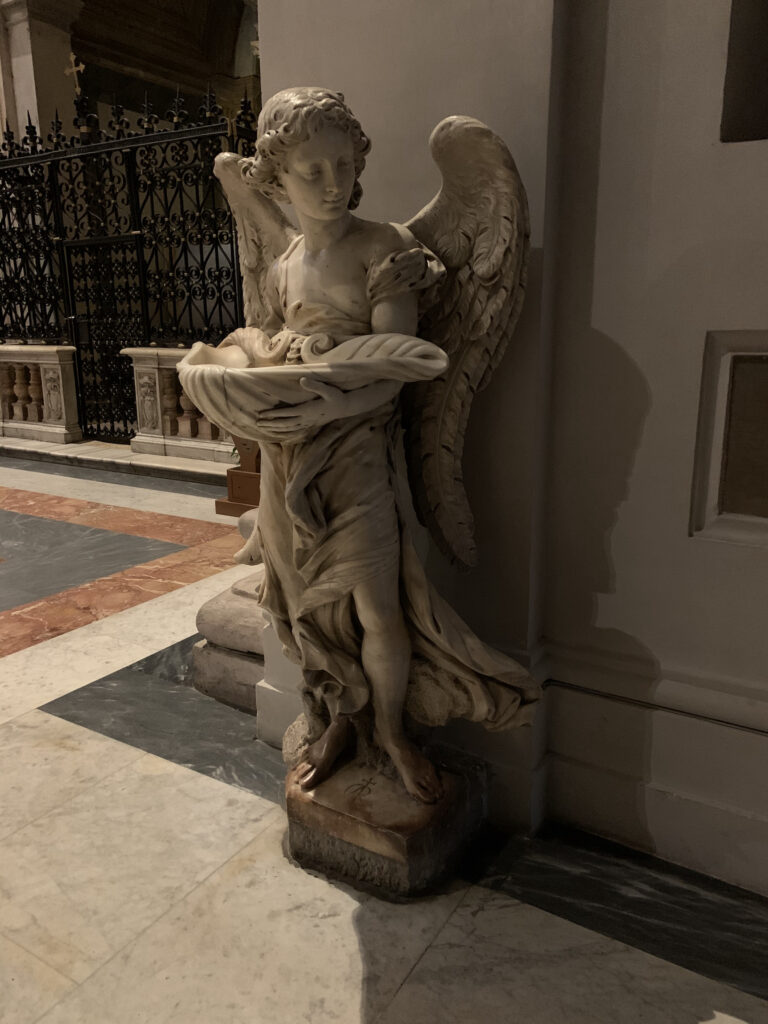
Indeed, the cardinal leading the funeral mass in Rome echoed some of these points in his homily. English language press explained how he “denounced how so many Congolese feel the constant threat of danger from rebel groups ‘knocking at their door,’ saying the country had been ‘cruelly devastated by violence that sees their children die every day.’” None of this is a news to any of us. It doesn’t matter if you are talking about roadside shootings or access to life saving vaccines—the people of this planet have ben been plagued by imbalance for a long time.
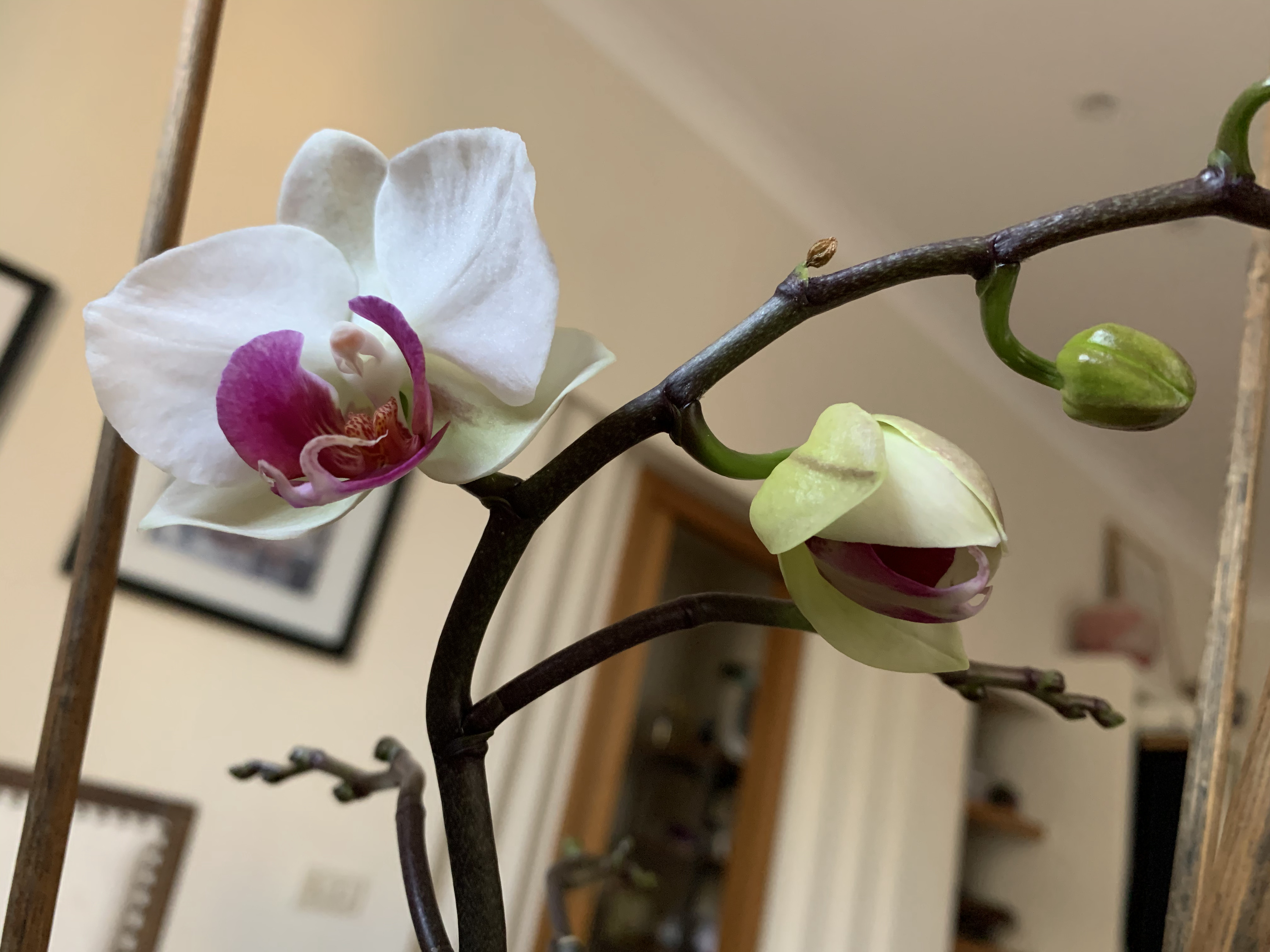
I’m not using this little story of my past seven days to draw parallels between a neglected orchid that regenerates itself and the lives of three people murdered by stupid cowards in central Africa. Life and nature are not that easy on us. Things happen to us every day that don’t make sense. Loss feels wasteful. I think back to something my dad once told me while I was going through a divorce and thought that I’d pushed my life off a table’s ledge. “Nothing is promised,” he said. It was a matter-of-fact observation, yet hauntingly true. I thought about that today while reflecting on three men who were only looking to do some good in the world. I thought about it as well when I looked at my orchid this morning and saw that she was in bloom. With a second bud opening up.
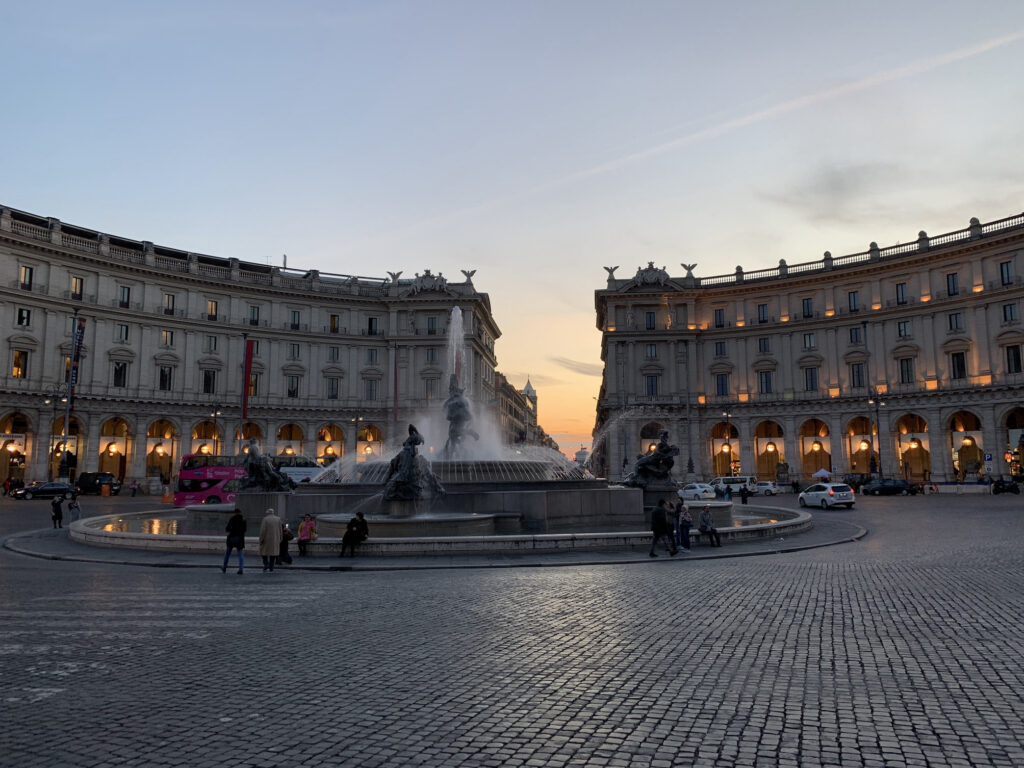
We have no choice but to continue on in our journey and simply do what we can to make it through the difficult days. In some moments it’s easier to appreciate what we’ve got right now—at other times, that feels almost impossible. For me right now, it’s the pause to recognize all of what’s around me. Whether it comes in finding signs of spring, or in expressing solemn gratitude for the good actions of people both named and underrecognized. These are the moments that feel the most important—and they make me feel optimistic for what will discovered tomorrow.